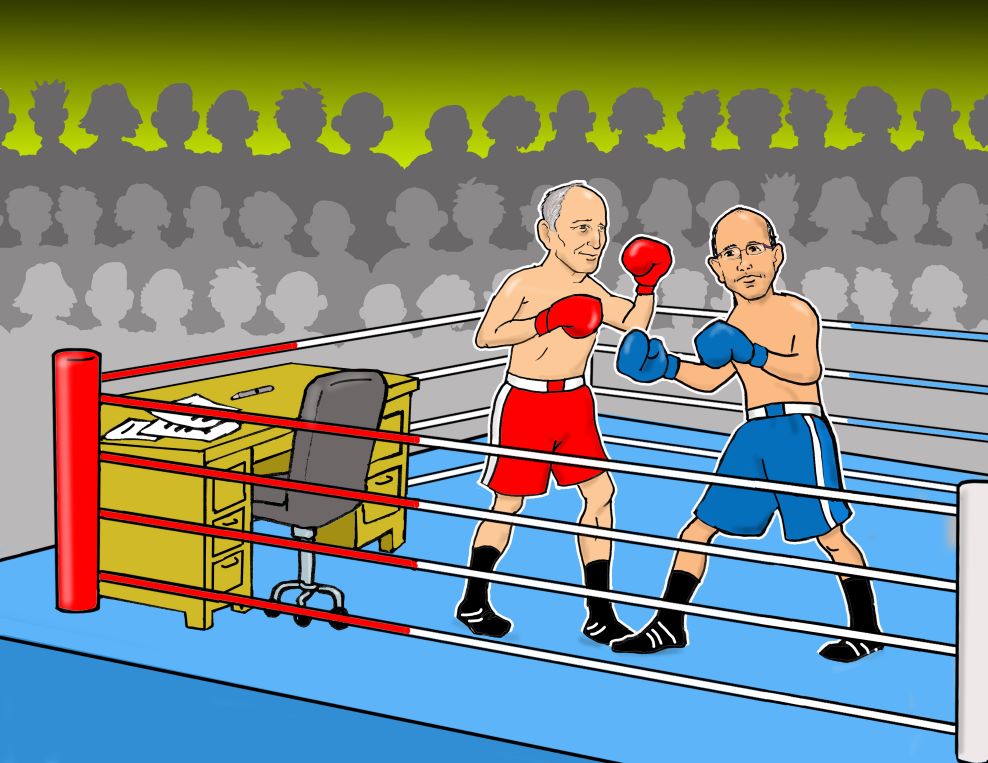Sustainability Match Round One: Vaclav Smil versus Yuval Noah Harari
Posted by Daniel Hoornweg on September 06, 2023

The thrust and parry of the sustainability debate is well-argued in the writings of two men: Vaclav Smil[1] versus Yuval Noah Harari[2],[3].
Yuval Noah Harari’s first bestseller Sapiens (2011) summarizes human history, the emergence of Homo sapiens, comparative civilizations, and the power of storytelling. Harari’s follow-up second bestseller Homo Deus (2016) examines Homo sapiens today with the premise that, in future, humanity will attempt to gain common happiness, immortality and God-like powers.
With almost 50 books over 50 years, Vaclav Smil’s writing is more plodding and detailed than Harari’s. Vaclav Smil deals in the specifics. Smil writes about the integrated nature of energy, environment, food, economics and public policy. He is often quoted by sustainability advocates like Bill Gates. Recently, Smil is gaining notoriety as people reference his skepticism on the speed at which the energy transition might take place.
Smil is highly adept at arguing through numbers and providing sufficient facts to dampen the most grandiose plans, no matter how well presented. Harari provides a more populist observation on the past and likely, future evolution of humanity. Harari is more engaging and probably the one you would want to chat with at a social gathering, while if you could only choose one to help survive being trapped on a desert island, Smil would be your best bet.
In the Ignorance, persistence, and humility section of How the World Really Works (2022) Vaclav Smil argues that we have limited capacity to chart the future. Chief among the supposed scientific advances that might change humanity is the imminent deployments of the “miraculous powers” of artificial intelligence and neural-learning networks, and genome editing. Smil goes on to say, “Nothing sums up better the excessive nature of these claims than the title of a 2017 bestseller, Yuval Noah Harari’s Homo Deus.”
Smil takes exception with the ideas of Harari, arguing; “COVID-19 exposed the emptiness of any notions of our supposed godlike capacity to control our fate”. This may not be as big a fight as the cage-match between Elon Musk and Mark Zuckerberg, but Smil and Harari approach sustainability from two different, but equally important, perspectives. The struggle for greater sustainability needs to take place at both the ‘forest’ scale (more Harari), and the ‘tree’ scale (more Smil). Details of course matter, but so too does a vision, a story that can move society toward a common (and hopefully correct) goal.
The energy transition, that will drive any shift to greater sustainability, must be predicated on humility, social acceptance, flexibility and solid engineering design, but more than anything, it needs to be driven at scale and speed. Changes of this magnitude will cause widespread unrest as ‘winners’ and ‘losers’ emerge. Existing stakeholders, with much to lose, will try to slow the transition. The way forward and common ground is clear: Proponents of sustainability need to quickly pull together.
Next month, Round Two, the women of sustainability take to the ring.
[1] Environmental scientist and emeritus professor at University of Manitoba in Winnipeg; author of 45+ books.
[2] Israeli historian and History Professor at Hebrew University; bestselling author of Sapiens, Homo Deus, and 21 Lessons for the 21st Century.
[3] Excellent summaries of the arguments of both men can be found at the podcast with Yuval Noah Harari; https://podcasts.apple.com/ca/podcast/lex-fridman-podcast/id1434243584?i=1000621410858 and recent book by Vaclav Smil, How the World Really Works.
Filed under: Sustainability 101